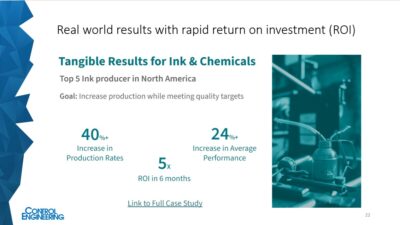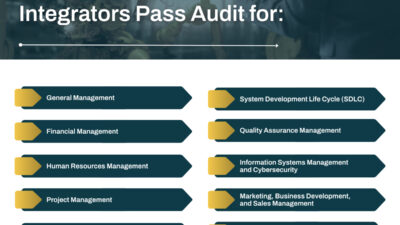Morristown, N.J., and Minneapolis, Minn.- AlliedSignal Inc. agreed June 7 to purchase Honeywell Inc. in a stock merger valued at approximately $14 billion. The deal, already unanimously approved by both companies' boards, is expected to create a $25-billion company with $45 billion in market capitalization.
Morristown, N.J., and Minneapolis, Minn. – AlliedSignal Inc. agreed June 7 to purchase Honeywell Inc. in a stock merger valued at approximately $14 billion. The deal, already unanimously approved by both companies’ boards, is expected to create a $25-billion company with $45 billion in market capitalization.
Though it will be headquartered in Morristown, the new firm will retain the Honeywell name. This latest purchase follows AlliedSignal’s protracted and unsuccessful 1998 effort to take over AMP Inc., which was later acquired by Tyco International Inc.
Pending regulatory approval, each of Honeywell’s 126 million common stock shares will be exchanged for 1.875 shares of AlliedSignal common stock. The new company will also take over about $1.5 billion of the former Honeywell’s debt. The current purchase is scheduled to close in 4Q99.
4,500 layoffs expected
To achieve its financial goals, the new Honeywell plans to save approximately $500 million annually by cutting overhead costs, accelerating Six Sigma quality implementation, integrating R&D, and achieving procurement efficiencies beginning with the closing and continuing until 2002. This will include laying off 2,000 employees within six months after the closing and 2,500 more in 2001. The combined firm will have more than 120,000 employees.
Though the former Honeywell’s Minneapolis headquarters will be closed, the new company plans to retain more than 6,000 employees in the Twin Cities area.
Lawrence Bossidy, AlliedSignal’s chairman and ceo, will be the new Honeywell’s chairman until he retires on April 1, 2000. Michael Bonsignore, Honeywell’s chairman and ceo, will be the new company’s ceo. Mr. Bonsignore will also become the new Honeywell’s chairman when Mr. Bossidy retires. The new firm’s board of directors will consist of nine current AlliedSignal board members and six current Honeywell board members.
Aerospace, other businesses
Analysts at ARC Advisory Group (Dedham, Mass.) report the main reasons for the merger are the two firms’ complementary strengths in aerospace. Honeywell is an avionics leader, while AlliedSignal is strong in flight safety and after-market services.
Two chief operating officers will report to Mr. Bonsignore: Robert Johnson, AlliedSignal’s current aerospace president and ceo, and Giannantonio Ferrari, Honeywell’s president and coo. Mr. Johnson will run the new firm’s combined aerospace operations in Phoenix, Ariz. With $10 billion in annual revenues, this will be the new Honeywell’s largest division. Mr. Ferrari will handle the combined firm’s other businesses that have total revenues of approximately $15 billion. These divisions include industrial controls, home and building controls, turbochargers, and other transportation products, specialty chemicals, and polymers.
A joint integration team has already been appointed to plan and execute the two firms’ merger. It is led by Ray Stark, AlliedSignal’s Six Sigma and productivity vp, and Bill Hjerpe, president of Honeywell Europe. Integration is expected to be complete before Mr. Bossidy retires.
Honeywell IAC divestiture unlikely for now
It’s improbable that Honeywell Industrial Automation and Control (IAC, Phoenix, Ariz.) will be divested soon after its parent’s recent merger with AlliedSignal. In a press conference shortly after the June 7 merger announcement, the new Honeywell’s two leaders, Lawrence Bossidy and Michael Bonsignore, said IAC would not be divested in the near future and that any divestiture would have to wait until integration of Honeywell and AlliedSignal is finished.
However, an analysis by ARC Advisory Group (Dedham, Mass.) projects the new Honeywell’s combined structure makes long-term divestiture of IAC a “distinct possibility.” ARC says the new firm’s main focus is on aerospace, while all its other business units exist as a diversified conglomerate. This could make it easy to identify divestiture candidates judged to be noncore businesses units. Likewise, IAC may also risk divestiture if it doesn’t continue to be a successful performer.
Before this scenario is considered, ARC estimates the new Honeywell will thoroughly integrate its two former companies. Both firms want to merge quickly and comprehensively, but even an accelerated integration is still expected to take about a year.
Meanwhile, ARC believes it’s unlikely IAC will make any significant changes in its business. For instance, though the combined company will be financially stronger, IAC isn’t expected to make any major acquisitions until integration is complete.
Internally, IAC could develop some synergies with former AlliedSignal divisions, such as AlliedSignal’s joint venture with Union Carbide in UOP, a leader in catalysts, refining, and petrochemical process technologies. IAC could also work with Allied Signals’ specialty chemicals and polymers divisions.



